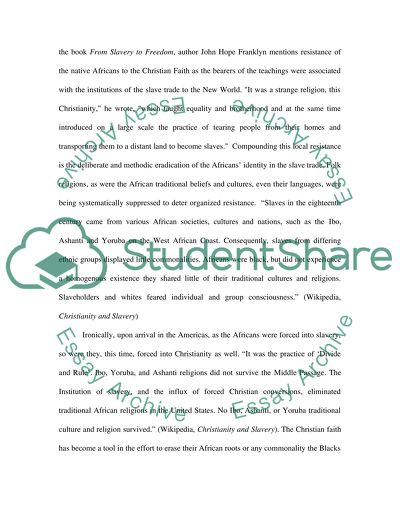Cite this document
(How Was Christianity Effective Spiritually to African Slaves When They Essay Example | Topics and Well Written Essays - 1500 words, n.d.)
How Was Christianity Effective Spiritually to African Slaves When They Essay Example | Topics and Well Written Essays - 1500 words. https://studentshare.org/history/1548708-how-was-christianity-effective-spiritually-to-african-slaves-when-they-were-forced-into-slavery
How Was Christianity Effective Spiritually to African Slaves When They Essay Example | Topics and Well Written Essays - 1500 words. https://studentshare.org/history/1548708-how-was-christianity-effective-spiritually-to-african-slaves-when-they-were-forced-into-slavery
(How Was Christianity Effective Spiritually to African Slaves When They Essay Example | Topics and Well Written Essays - 1500 Words)
How Was Christianity Effective Spiritually to African Slaves When They Essay Example | Topics and Well Written Essays - 1500 Words. https://studentshare.org/history/1548708-how-was-christianity-effective-spiritually-to-african-slaves-when-they-were-forced-into-slavery.
How Was Christianity Effective Spiritually to African Slaves When They Essay Example | Topics and Well Written Essays - 1500 Words. https://studentshare.org/history/1548708-how-was-christianity-effective-spiritually-to-african-slaves-when-they-were-forced-into-slavery.
“How Was Christianity Effective Spiritually to African Slaves When They Essay Example | Topics and Well Written Essays - 1500 Words”. https://studentshare.org/history/1548708-how-was-christianity-effective-spiritually-to-african-slaves-when-they-were-forced-into-slavery.


